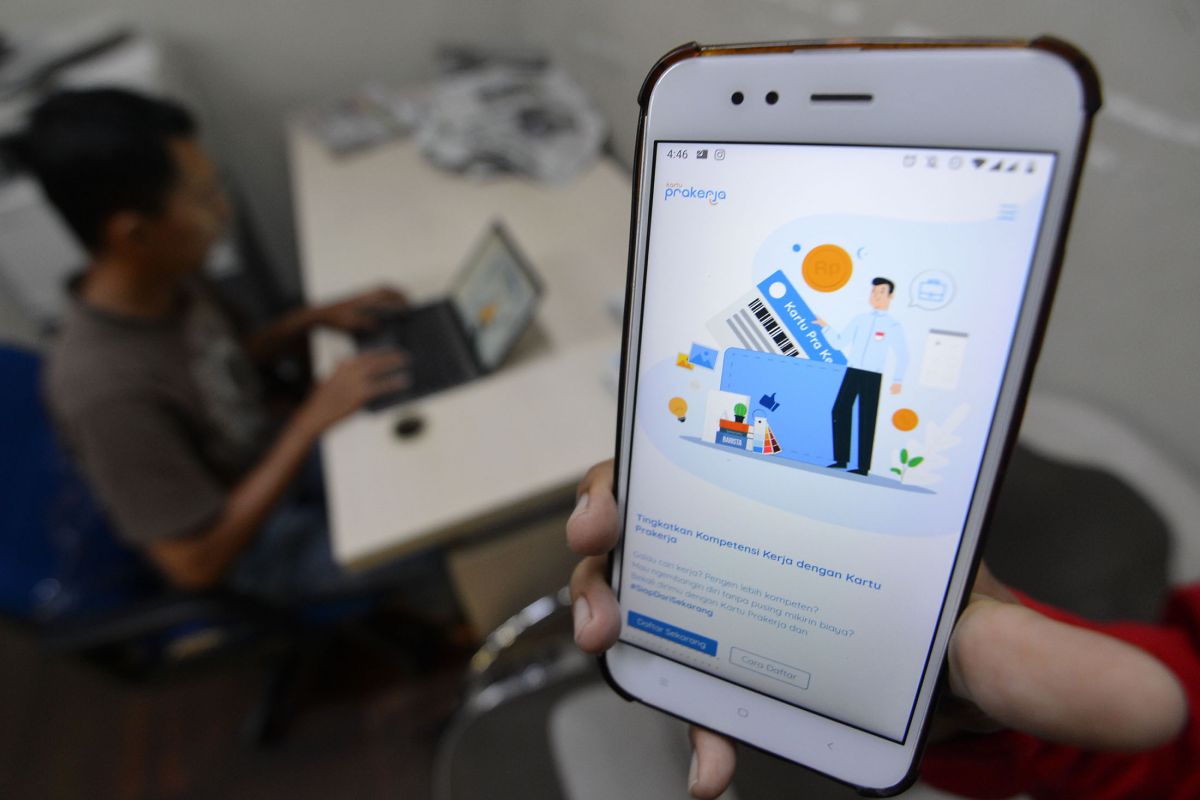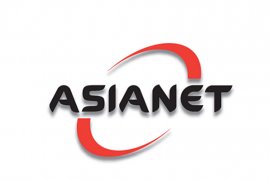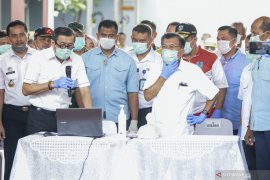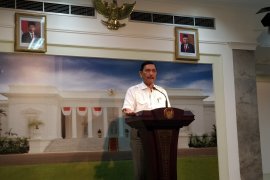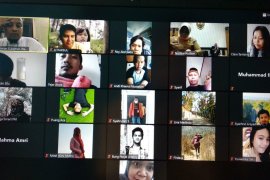The government does not need to enforce the application of the pre-employment card scheme amid a pandemic. The program is prepared for normal situations and not in the midst of a pandemicBekasi (ANTARA) - The novel coronavirus disease (COVID-19) pandemic is much more than a medical crisis.
The socio-economic implications of the COVID-19 pandemic are far-reaching, as several nations, including Indonesia, have imposed large-scale social restrictions to fight the spread of COVID-19.
The application of large-scale social restrictions has forced factories, restaurants, hotels, entertainment centers, schools, and universities to close.
Residents have been instructed to stay at home and to not conduct religious and social gatherings.
Consequently, the coronavirus outbreak has triggered unprecedented mass layoffs.
Some 1.7 million workers were laid off and forced to take unpaid leaves due to the pandemic.
Coordinating Minister for Economic Affairs Airlangga Hartarto stated that the laid-off workers will be gradually included in the pre-employment card program in the next four to five weeks.
Some nine million people have registered for the pre-employment card program. Meanwhile, 456 thousand users, mostly from Jakarta, West Java, Central Java, East Java, and South Sulawesi, have received the benefits in the first and second phase, the minister remarked.
"We can witness this enthusiasm as a reflection of the high public expectations from the Pre-employment Card Program," he pointed out.
Hartarto expounded that the Pre-employment Card Program focused on workers, job seekers, and self-employed people engaged in small and micro businesses affected by the COVID-19 pandemic.
The program prioritizes laid-off workers and those engaged in micro and small businesses that had suffered job losses.
The government had also collected data through employment services, tourism, cooperatives, and SMEs, industry, and trade, as well as in sectors affected by the reduction of community mobility, such as transportation and retail.
As many as 18 percent of beneficiaries of the pre-employment card program choose to receive incentives through banks, while the remaining 72 percent used e-wallet or e-money.
Those who succeeded in getting the pre-employment card will receive a total incentive of Rp3.55 million.
The details are firstly a training fee of Rp1 million that can be utilized to purchase one or more trainings of the digital platform partners.
Secondly, the first post-completion training incentive of Rp2.4 million comprises Rp600 thousand per month, and thirdly, post-filling incentive in the form of an evaluation survey of Rp50 thousand per survey, with Rp150 thousand for three surveys.
Incentive funds will be transferred through the participant's bank account or e-wallet (LinkAja, Ovo or GoPay).
The eight digital platforms declared by the government to provide training are Tokopedia, Ruangguru through the Skill Academy, MauBelajarApa, Bukalapak, Pintaria, Sekolahmu, Ministry of Manpower, and Pijarmahir.
The government has budgeted funds worth Rp596.8 billion for 168,111 participants received in phase I. In total, the government provided Rp20 trillion for 5.6 million participants of the pre-employment card program this year. A 30th phase is planned until November 2020.
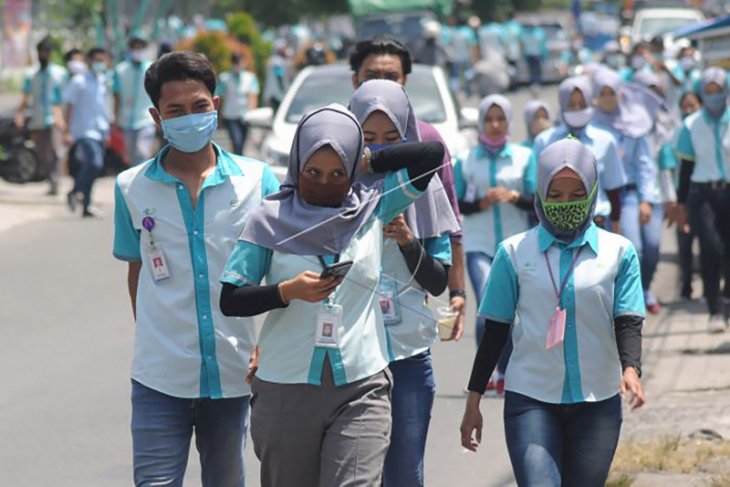
(Antara Foto/ Aloysius Jarot Nugroho / cellphone.)
Furthermore, the National Council for Inclusive Finance (DNKI) has called on recipients of the pre-employment card to allot incentives of the card for savings and business capital.
"We are optimistic that the funds provided by the government would not be used up for consumption but instead utilized as capital to develop businesses," Deputy Assistant for the Capital Market and Financial Institutions of the Coordinating Ministry of Economic Affairs Gede Edy Prasetya noted during an online discussion pertaining to the pre-employment card program in Jakarta on Tuesday.
A monthly incentive of Rp600 thousand is available to beneficiaries through the pre-employment card for a period of four months.
Despite the amount not being large, Prasetya believes that several businesses can be started with little capital.
Prasetya noted that the government is prepared to help with capital, including access to formal financial institutions, to increase the scale of businesses.
"We can encourage them to access micro-credit and then move up to small and commercial," he remarked.
In addition to venture capital, he stated that the incentives received can also be channeled for fulfilling other requirements, for instance, saving, which is viewed as being beneficial, especially while facing the COVID-19 pandemic.
"If people can access formal financial institutions, they can save money. Saving has several uses, especially during this pandemic. Saving is the main thing," he emphasized.
Not designed for pandemic
A member of the House of Representatives Commission XI Ecky Awal Mucharam reminded that the pre-employment card was not designed for the COVID-19 pandemic, so budget allocated from the program should be diverted to other posts that were more appropriate for use.
"The pre-employment card was designed after taking into account a normal situation with the concept of providing training for people to be hired. However, information from the Central Statistics Agency (BPS) shows no new job openings," Mucharam stated.
The House member opined that it was irrelevant if budget was still allocated for the pre-employment card program based on normal assumption conditions. He suggested that it should be diverted to direct assistance, such as direct cash assistance (BLT) and basic foods that can be directly beneficial for the people in dire need of it.
Hence, he urged the finance minister to adopt a firmer and bolder fiscal policy, especially in the policy of cutting the state budget that is still viewed as not focusing on handling COVID-19 and its impacts.
Thinking on the similar lines, Executive Director of Indonesia for Global Justice (IGJ) Rachmi Hertanti urged the government to not impose the application of the pre-employment card scheme during the COVID-19 pandemic.
"The government does not need to enforce the application of the pre-employment card scheme amid a pandemic. The program is prepared for normal situations and not in the midst of a pandemic," Hertanti noted.
Hertanti opined that the application of the scheme need not be forced partly since several workers laid off in various regions were unable to access the program owing to technical constraints.
Moreover, the termination program is not considered to be on target since the most apposite step to be taken currently is to secure the fate of workers and their families in the wake of the crisis.
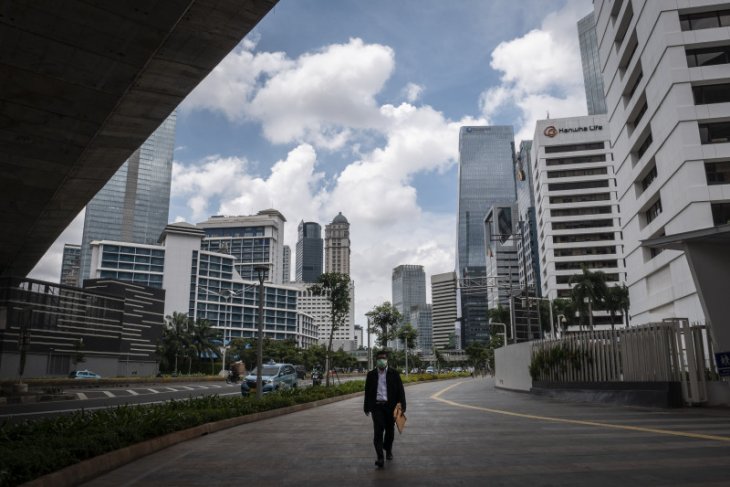
Alamsyah suggested that the government should offer direct assistance to informal workers rather than providing the pre-employment card program.
He also revealed that Indonesia’s internet penetration rate was still low. Some 40 percent of Indonesia's population of primary school level do not yet access the internet.
Related news: Incentives of pre-employment card to be reserved for savings: DNKI
Related news: Government to step up capacity of pre-employment card participants
Furthermore, there were lingering concerns that the pre-employment card program did not guarantee jobs for the participants despite having joined the program.
"After completing this project, where would the person be sent? Where would it be distributed to under the conditions of this pandemic?" Alamsyah stated.
The pre-employment card was a good program from the government to prepare prospective workers to be ready to be absorbed by companies.
However, the COVID-19 pandemic has caused an unprecedented scenario, dragging the business world into an alarming condition.
This situation of uncertainty has made it difficult for companies to undertake a short-term recruitment process.
This can improve only if the government can ascertain when the pandemic will end.
Meanwhile, recruitment companies are contemplating on ways to survive during the COVID-19 pandemic.
Related news: Over 280,000 to participate in second term of Pre-employment Card
Related news: Laid-off workers to benefit from Pre-Employment Card Program
Editor: Fardah Assegaf
Copyright © ANTARA 2020
